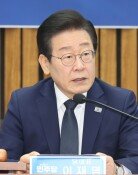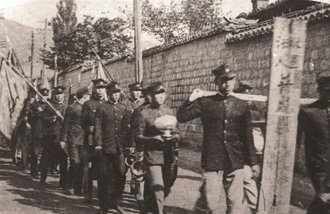The health of the elderly benefits everyone
The health of the elderly benefits everyone
Posted November. 08, 2024 08:29,
Updated November. 08, 2024 08:29
Mika Takishima, a 93-year-old Japanese grandmother born in 1931, is now a personal trainer. She began exercising in her sixties, having been a stay-at-home mom after marriage. In her book, “Miracle Weight Training of a 92-Year-Old Grandmother,” which is also published in Korea, she explains why she started exercising. When she was 65 years old, her daughter asked, “Mom, haven't you gained weight lately?” as she ate snacks at home. Her husband then took her to a gym right away. That's how it all started, and by the time she was 87, Takishima had become a personal trainer and published a book.
If Grandma Takishima had been Korean, she might have been turned away at the door if she chose the wrong gym. That's because there is a growing number of so-called ‘No Silver Zone’ gyms that don't accept seniors. Similar cases have occurred in Seoul's Gangdong and Yeongdeungpo districts, as well as in Daegu. The National Human Rights Commission (NHRC) has even recommended reforms for sports facilities that restrict membership to those over 65 years of age, calling it discriminatory.
Gyms that refuse to allow seniors to join cite reasons such as “seniors staring at younger women in leggings” and “frequently talking to younger members, which leads to complaints.” To increase membership, gyms rely on spreading word-of-mouth among younger members and promoting themselves on social media platforms like Instagram. However, if the number of elderly members increases, gyms may lose revenue as younger members are likely to avoid them. Given Korea's demographics, the number of such gyms is likely to increase in the future. Statistics Korea predicts that the proportion of people aged 65 and older will exceed 20 percent of the country's population for the first time next year.
Sports facilities that refuse to accept the elderly have the right to exercise their individual property rights as businesses. The state cannot force them to allow access beyond the recommendations of the NHRC. However, the state can create a welcoming environment for the elderly by giving incentives to sports facilities. A good example is Japan's Health Promotion Law, which was implemented as the country became a super-aged society earlier than Korea. The law provides tax credits for facilities that offer appropriate exercise programs for the treatment and prevention of diseases.
This support is not just for the elderly. According to insurance researchers, the National Health Insurance will deplete its 25 trillion won in reserves by 2028, and by 2032, the deficit is projected to reach 20 trillion won. This is due to the steep increase in hospital expenses as the elderly population grows. Therefore, an increased number of healthy seniors is essentially a way to protect the financial well-being of the younger generation.
In Japan, many middle-aged people are inspired by Grandma Takishima to start exercising. Major Japanese media outlets also feature her, publishing articles on how to exercise. In Takishima’s book, Michiko Sato, 47, said, “Just thinking about Ms. Takishima's smile, which is always like a sunflower, gives me the positive power to say, ‘I can still do it!’ and 'Let's try!'” If gyms rejected seniors, there would be no such inspiring stories. Perhaps the health of the elderly benefits everyone. The generational conflict symbolized by the 'No Silver Zone Gym' needs to be addressed by relevant organizations to prevent it from becoming extreme.
Headline News
- Korean business leaders urge a halt to commercial law amendment
- Yoon begins extensive verification for cabinet and staff reshuffle
- Police confirm Pyongyang’s involvement in Ether heist in 2019
- Ukraine fires British Storm Shadows at targets on Russian territory
- Ulsan and Pohang compete to crown Korea’s soccer champions







